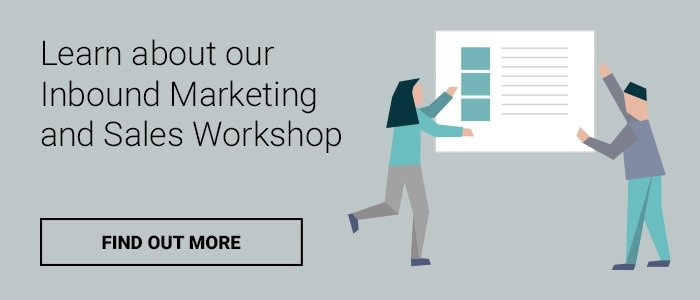7 WAYS INBOUND MARKETING CAN GROW YOUR BUSINESS
Inbound marketing is a marketing and sales framework used to attract, engage, convert and delight customers. More than this Inbound is a human centered way of doing business.
Inbound starts with strangers to your business and converts prospects into leads and customers who ultimately can become advocates for your business. Sounds good doesn’t it? If you’re new to the Inbound framework then it may sound too good to be true and if you’ve been practising inbound, you’ll understand that inbound is a long-term business changer that can significantly grow your business.
7 ways to use Inbound Marketing to grow your business?
1. Inbound marketing will boost website performance
Inbound is all about being human – talking, sharing and interacting with your customers just like you might with your neighbours and friends. The human effect creates content that is compelling and evergreen in nature. Inbound content is valuable, authoritative and search engines love this.
Your efforts to research and dig deeper for impactful insights will be recognised by the search engines – so it’s a case of fewer, bigger, better. Quality counts! With the resulting effect being easier to find your business by ranking for more of the important keywords. This will generate the quality traffic you are looking for.
2. Inbound marketing helps the buyers journey - converting visitors to leads
Clearly there’s no point generating lots of visits to your site only to see them bounce or fail to convert into a lead. Sure, achieving good traffic numbers to your site boosts your ego, however, conversion is what counts and this where inbound really helps grow your business.
The trick is to offer premium content. This is content that is exclusive and highly valuable. It could be content in the form of videos, eBooks, white papers, webinars and events that’s all designed to encourage the user to exchange their details and ideally, to engage in conversation for perhaps the first time with your business.
3. Inbound marketing can leverage automation for greater leverage
Marketing departments are not getting bigger anytime soon! And yet the world of digital seems to require so many more hours dedicated to research, create content, monitor and respond, clean data... and the list goes on! Therefore, we need to employ smart systems and tools that provide leverage – without taking up too much of your valuable time and effort.
Marketing automation can and will perform the heavy lifting for you by publishing content, email sequences and workflows. Most importantly, automation should integrate seamlessly these activities into your CRM and marketing dashboard for real time, agile decision making.
4. Inbound marketing will help convert leads to customers
The great thing about inbound marketing is that your prospects have self-qualified themselves. No more cold outbound calls, they are ready for you in your inbox! They have opted in to find out more. Now it’s time to convert these leads into customers.
If you have followed the inbound methodology then your prospects will be receptive to your outreach, or perhaps they might even qualify themselves and go to that next step. The type of content required at this stage is now product/solution based to help clarify and tailor the right solution. As a marketer you’ll be handing on qualified leads for sales to convert. This is the glue required for a mutually beneficial relationship between marketing and sales (more about this below).
5. Inbound marketing is an accountable, long-term strategy
The thing about long-term brand building is that it is often difficult to measure the return on investment. Inbound at its heart is accountable. The data is behavioural and at your fingertips everyday.
Begin by setting yourself long-term goals in relation to traffic, leads and customers. Inbound marketing will help you achieve your growth goals in an incremental manner because every piece of content is an asset that that your business owns and can leverage. And your content grows in its value and authority over time for the business, acting as a conversion enabler across your inbound funnel.
6. Inbound marketing connects marketing and sales
We’re big believers in ‘Smarketing’ here at Collab. Put simply, Smarketing is the successful operational alignment between your marketing and sales teams. And successful inbound requires marketing and sales to be on the same page. Having shared goals is a growth driver with research suggesting that aligned marketing and sales teams can generate an average of 20% annual revenue growth.
Smarketing is not a strategy that is wildly innovative, however it is a must for inbound and creates a sense of mutuality not often experienced between these two (often competing) departments in many businesses.
7. Inbound marketing connects to service advocacy
Growth is not purely about acquisition. The last stage of inbound is the delight phase or in other words – retaining and growing customers by providing amazing service levels! This is a critical part of the inbound process. Service quality matters! In fact it’s everything for the growth ambitions of your business as research from Microsoft shows that 60% of consumers have stopped doing business with a brand because of poor customer service. The exciting flip side to this is that customers with high engagement scores achieve 50% higher revenues. Therefore, happy customers stay, they buy more and they tell their friends and associates.
Inbound is often confused with content marketing or short-term digital marketing tactics. Inbound uses both of these initiatives, however inbound is a strategic, human-centred framework with practical outcomes for achieving long-term growth that has customer centricity at its heart.


